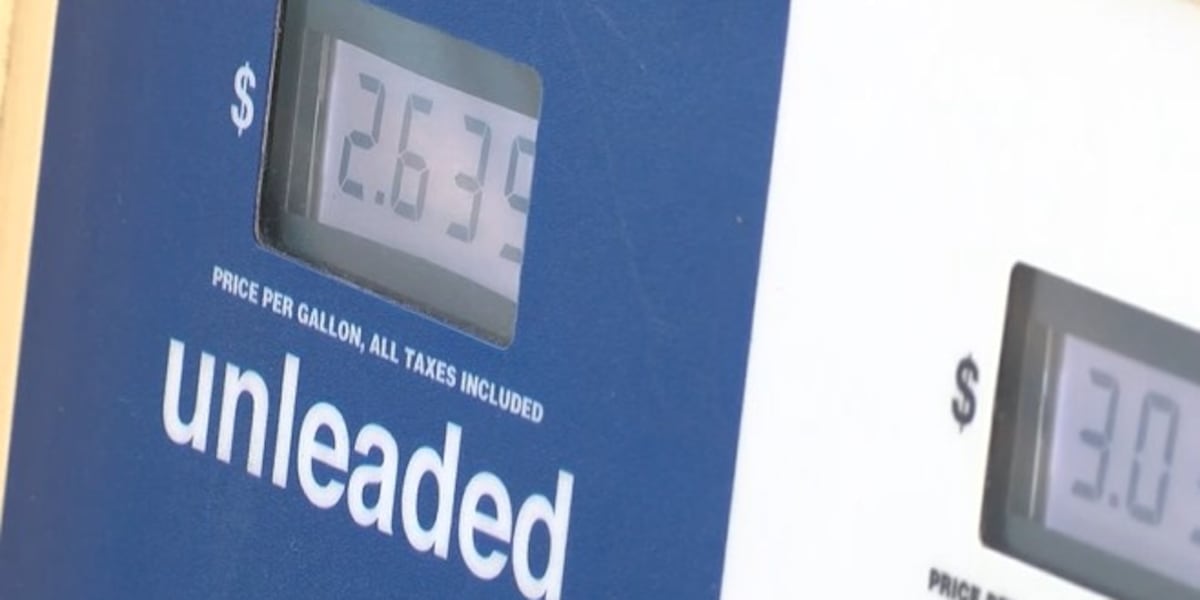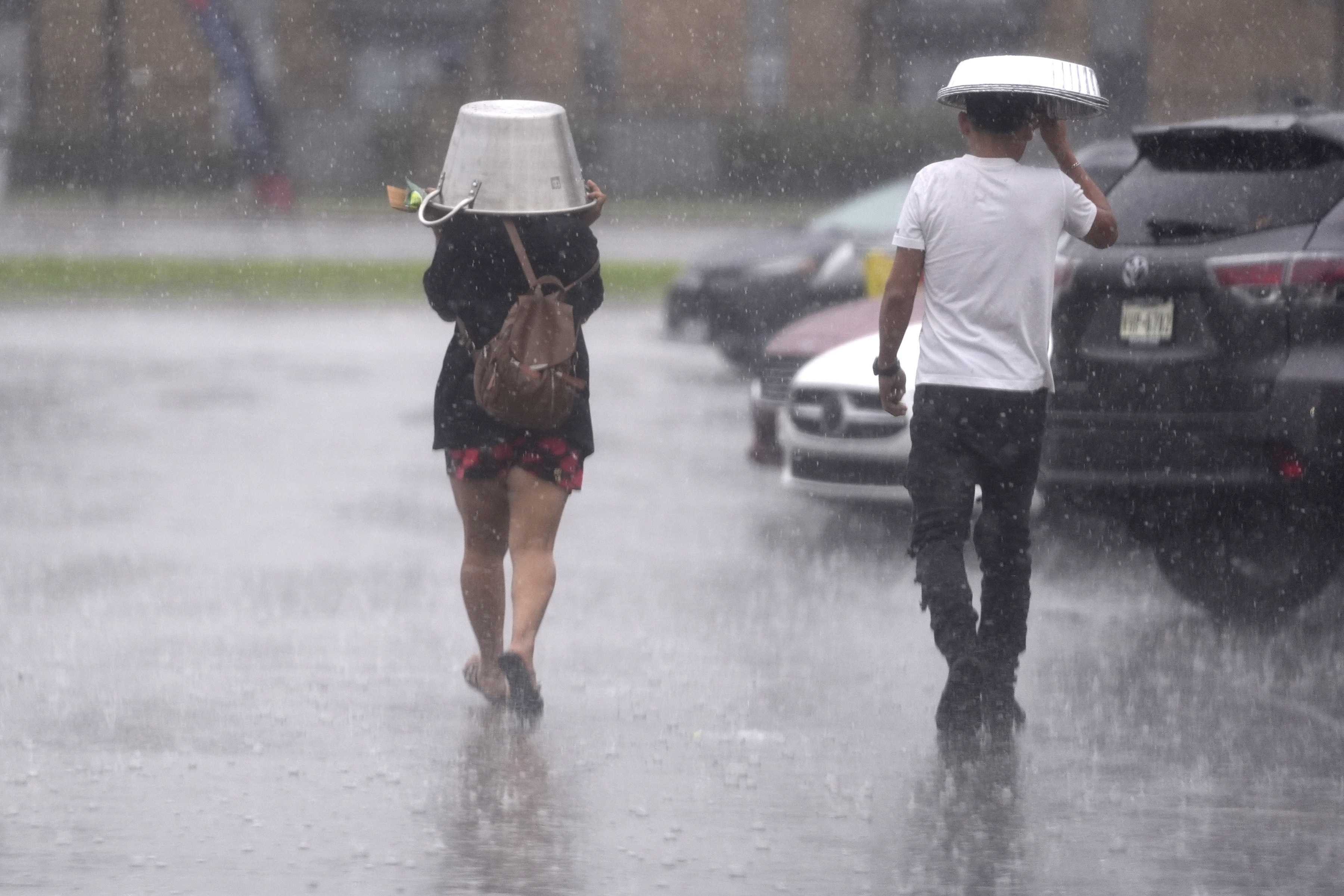Sign up for The Brief, The Texas Tribune’s daily newsletter that keeps readers up to speed on the most essential Texas news.
The Environmental Protection Agency on Saturday finalized a long-anticipated climate regulation that will require oil and gas operators to dramatically reduce how much methane, a potent greenhouse gas, is escaping from equipment in many oil fields across Texas.
The rule achieves a major goal of the Biden Administration to crack down on methane, the second-largest contributor to climate change after carbon dioxide. The regulation was announced early Saturday morning in Dubai at the 28th international United Nations climate summit, known as COP 28.
Methane can trap much more heat in the atmosphere than carbon dioxide but lasts in the atmosphere for a few decades rather than a few centuries— meaning that emission reductions are felt relatively quickly.
With nations behind on their commitments in the Paris Climate Accords international treaty to hold the Earth to 1.5 degrees celsius of warming compared to pre-industrial levels, attention has turned to methane for its potential to slow climate change in the short term and buy some time.
“This is historic news for our climate, for our future, and for our children,” said EPA Administrator Michael Regan during a press conference Saturday in Dubai. “The standards today, while ambitious, are common sense.”
Global concentrations of methane in the atmosphere have dramatically increased in recent years: In 2021, methane increased by almost 18 parts per billion in the atmosphere, the biggest increase in a single year since the National Oceanic and Atmospheric Administration’s records began in 1984. In 2022, atmospheric methane increased by 14 parts per billion, the fourth largest increase on record.
Most of the methane emissions in the U.S. come from the energy sector — especially in Texas, the nation’s largest oil and gas producing state which currently lacks a strict rule to capture escaping methane emissions from energy infrastructure. The Permian Basin in particular is a major methane hotspot, and operators there have long been criticized by environmental groups for failing to ensure equipment isn’t venting huge quantities of methane into the atmosphere.
The rules, which were first drafted two years ago, were modeled in part after state-level methane regulations in New Mexico and Colorado. At a press conference in Dubai, New Mexico Gov. Michelle Lujan Grisham applauded the EPA rule as one that would ensure states that neighbor each other — like Texas and New Mexico — would have “apples to apples” regulations.
“Having federal rules means that my border states, and the very same companies who are operating in both states, will adhere to the same standards,” Lujan Grisham said.
Oil and gas companies will be required to phase out routine flaring of natural gas, a relatively common practice in which companies burn off excess gas that is unearthed along with oil. If a flare isn’t wholly lit, or the flame goes out and is not re-ignited, then the raw methane vents into the atmosphere. Companies also burn off gas when drilling wells or when shutting down a facility on short notice, such as during a weather emergency.
Routine flaring without permission from regulators is barred by state law, but companies frequently request exceptions from the rules; the Texas Railroad Commission, which oversees the state’s oil and gas industry, authorized about 3,600 venting and flaring exceptions in 2022, according to agency data. Yet some independent analyses have found that oil and gas companies are likely flaring gas in the field more frequently than approved by state regulators.
The oil and gas industry has in recent years touted its own efforts to cut methane emissions in the oil field.
Early on Saturday, the Kingdom of Saudi Arabia announced that 50 oil and gas companies — including Exxon Mobil, Occidental Petroleum, Shell, and several national oil companies — had agreed to meet net-zero emissions in their operations by 2050, end routine flaring by 2030, and reach significantly curtail methane emissions in the oil field.
Darren Woods, the CEO of ExxonMobil, headquartered in Spring, a suburb of Houston, also made an appearance at COP 28 this week. Woods is reportedly the first Exxon chief executive to attend one of the climate summits.
Some industry groups on Saturday did not immediately oppose the EPA’s new regulation. For example, the American Petroleum Institute, a major trade group for U.S. oil and gas companies, said it was still reviewing the rule on Saturday, and said that it shares the administration’s goal to reduce methane emissions.
“This rule must balance emissions reductions with the need to continue meeting rising energy demand,” said Dustin Meyer, API’s senior vice president of policy, economics and regulatory affairs, in a statement.
However, in comments submitted to the EPA earlier this year, the Texas Alliance of Energy Producers wrote that the regulations would be costly and lauded industry-led efforts.
“Burdensome federal requirements on producers are unnecessary,” wrote Jason Modglin, president of the Texas Alliance of Energy Producers, which represents independent oil companies.
A major tenant of the regulation is that it will require companies to monitor their equipment for methane leaks — another big source of emissions from the oilfield — and allows companies to choose from many different types of technology to do so. That was a sticking point that many industry groups asked regulators to include.
The rule also creates a new “super emitter” program in which large methane releases are identified and targeted. Last year, the federal agency did some limited helicopter flyovers of the Permian Basin in an attempt to identify some of those methane pollution hot spots.
States will be tasked with enforcing the regulations, and will have two years to create a plan for how they’ll implement them, an extension of an earlier proposal. Texas’ environmental and energy agencies had both requested the EPA extend the deadline.
The Administration has estimated that the regulation will cut 58 million tons of methane emissions between 2024 and 2038, which is nearly as much carbon dioxide emitted by the power sector in 2021. However, in comments submitted earlier this year, Texas environmental and energy agencies characterized those estimates as inflated and “unrealistic.”
But Texas regulators have already suggested that they believe the federal regulation could be vulnerable to legal challenges: In comments submitted to the EPA in February, the Texas Commission on Environmental Quality and the Railroad Commission warned of “overreach” by EPA in light of a Supreme Court decision last year that significantly curtailed the federal agency’s power to regulate emissions.
The Texas regulatory agencies argued in their comments that responding to climate change could be considered a “major policy question,” which the Supreme Court has found should be decided by Congress rather than federal bureaucrats, and that “agencies have only the authority granted to them by Congress and no such grant to address global climate change.”
Texas’ state regulatory agencies also complained in the comments that there are too many requirements before the state can approve requests by facilities, including old facilities nearing the end of their life, to waive some of the stricter emissions requirements. Texas argues that the red tape will effectively “force” states with large oil industries to apply the rule as written and “eliminate discretion.”
The state, under Attorney General Ken Paxton, frequently and enthusiastically sues the Biden Administration over regulations it views as onerous or an economic threat to the energy sector.
An EPA official told The Texas Tribune that the agency doesn’t intend for those requirements to be onerous for state agencies.
Texas environment groups on Saturday praised the new regulation given Texas’ lax attitude toward greenhouse gas emissions. Elizabeth Lieberknecht, a regulatory and legislative manager for the Environmental Defense Fund, called the regulation “game changing in Texas.”
Luke Metzger, the executive director of Environment Texas, said the federal regulations are necessary since state regulators appear unwilling to take serious steps to reduce greenhouse gas emissions from Texas’ massive oil sector.
Texas, Metzger said, “needs strong federal regulations to reduce methane emissions— maybe more than any other state.”
Disclosure: Environmental Defense Fund, Exxon Mobil Corporation and Texas Alliance of Energy Producers have been financial supporters of The Texas Tribune, a nonprofit, nonpartisan news organization that is funded in part by donations from members, foundations and corporate sponsors. Financial supporters play no role in the Tribune’s journalism. Find a complete list of them here.

:focal(0x0:8145x5430)/static.texastribune.org/media/files/000e6c30333e6b8d9b48356fdc0e0d09/0226%20ITC%20Danny%20Hardy%20MF%2013.JPG)






















/cdn.vox-cdn.com/uploads/chorus_asset/file/24924653/236780_Google_AntiTrust_Trial_Custom_Art_CVirginia__0003_1.png)





/cdn.vox-cdn.com/uploads/chorus_asset/file/25672934/Metaphor_Key_Art_Horizontal.png)
